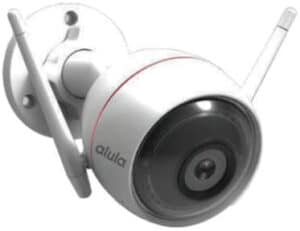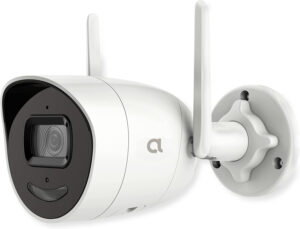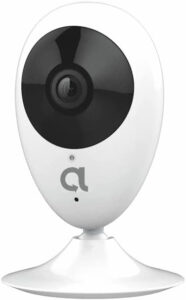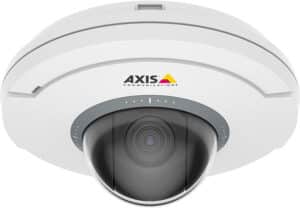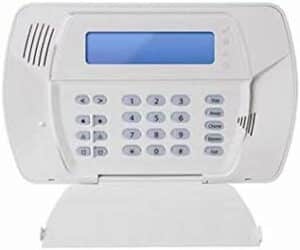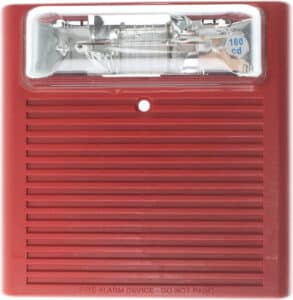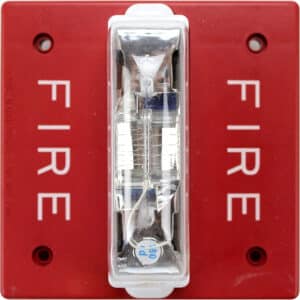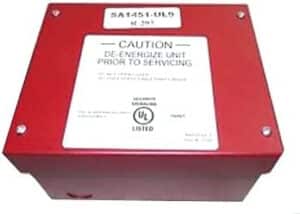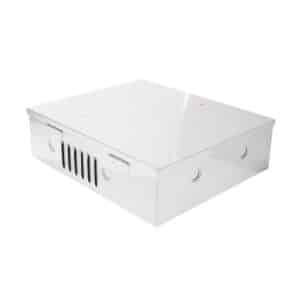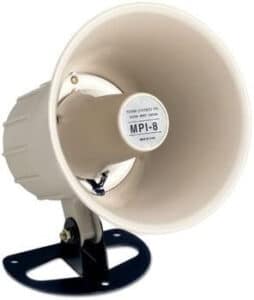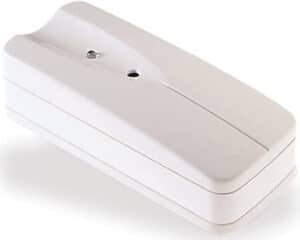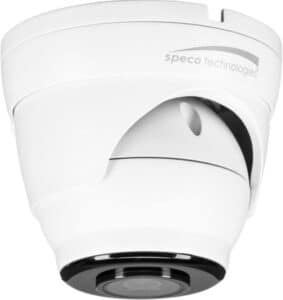How to Choose Between Analog and Digital CCTV Cameras for Your Home or Business?
Security cameras have become an essential part of any home or business security system. They provide an extra layer of protection, helping to deter criminals and providing valuable evidence in the event of a break-in or other security breach. If you are considering installing security cameras, you will need to decide between analog and digital CCTV cameras. In this article, I will provide a comprehensive guide to help you determine which type of camera is better suited for your needs.
Table of Contents
Analog vs. Digital CCTV Cameras: Which is Better for Your Home or Business?
The world of security cameras has evolved tremendously over the years. From the early days of analogue surveillance systems to the current state-of-the-art digital technologies, the choices available to homeowners and businesses are vast. But with so many options, how do you decide which type of security camera is right for your specific needs? In this section, we will explore the differences between analogue and digital CCTV cameras, their pros and cons, and the factors to consider when choosing between them.
Analog Security Cameras
Analog security cameras are the traditional, wired option that has been around for decades. They use coaxial cables to transmit video signals to a digital video recorder (DVR), which then converts the analog signal into digital format for storage and viewing. Analog cameras are generally less expensive than their digital counterparts and are compatible with older, existing systems.
Digital Security Cameras
Digital security cameras, also known as Internet Protocol (IP) cameras, transmit video signals digitally over a network. This eliminates the need for a DVR, as the footage can be stored directly on a Network Video Recorder (NVR) or in the cloud. Digital cameras offer higher resolution and better image quality, as well as more advanced features like remote monitoring and integration with other smart home devices.
The Pros and Cons of Analog and Digital CCTV Cameras: A Comparative Guide
Before diving into the specifics of each type of security camera, it’s important to understand the pros and cons associated with both options. This comparative guide will help you get a better understanding of which may be more suitable for your home or business.
Pros of Analog Security Cameras
- Lower Cost: Analog cameras are generally less expensive than digital cameras, making them a more budget-friendly option for those looking to secure their property.
- Compatibility: Analog cameras are compatible with older, existing systems, making them a good choice for those looking to upgrade or expand their current security setup.
- Simplicity: Analog systems are relatively simple to understand and operate, making them a good option for those who are not tech-savvy.
Cons of Analog Security Cameras
- Lower Image Quality: Analog cameras generally have a lower resolution than digital cameras, resulting in poorer image quality.
- Limited Features: Analog cameras do not offer the advanced features of digital cameras, such as remote monitoring and smart home integration.
- Wired: Analog cameras require a wired connection, which can be more difficult and time-consuming to install.
Pros of Digital Security Cameras
- Higher Image Quality: Digital cameras offer higher resolution and better image quality, making it easier to identify details such as faces or license plates.
- Advanced Features: Digital cameras offer a variety of advanced features, such as remote monitoring, motion detection, and integration withsmart home devices.
- Wireless Option: Digital cameras can be wireless, eliminating the need for a wired connection and making installation easier and quicker.
Cons of Digital Security Cameras
- Higher Cost: Digital cameras are generally more expensive than analogue cameras, making them a less budget-friendly option.
- Compatibility Issues: Digital cameras may not be compatible with older, existing systems, requiring a complete overhaul of the security setup.
- Complexity: Digital systems may be more complex to operate and understand, requiring a higher level of technical expertise.
How to Determine Whether Analog or Digital CCTV Cameras are More Suitable for You
When deciding between analog and digital CCTV cameras, there are several factors to consider. These include:
Budget
One of the most important factors to consider when choosing between analog and digital CCTV cameras is your budget. Analog cameras are generally less expensive than digital cameras, making them a more cost-effective option for those on a tight budget. However, if you can afford it, digital cameras offer better image quality and advanced features.
Security Needs
The level of security needed for your home or business is another important factor to consider. If you need high-quality footage for identification purposes or want advanced features like remote monitoring, then digital cameras may be the better option. However, if you just need basic surveillance and don’t have a high risk of theft or vandalism, then analogue cameras may be sufficient.
Compatibility
If you already have an existing security system in place, then compatibility is an important factor to consider. Analog cameras are generally more compatible with older systems, while digital cameras may require a complete overhaul of the security setup.
Technical Expertise
Finally, consider your level of technical expertise when deciding between analogue and digital cameras. Analogue systems are generally simpler to operate and understand, making them a good option for those who are not tech-savvy. However, if you are comfortable with technology and want advanced features, then digital cameras may be the better choice.
Understanding the Key Differences Between Analog and Digital CCTV Cameras
To make an informed decision when choosing between analog and digital CCTV cameras, it’s important to understand the key differences between the two types of cameras. These include:
Image Quality
One of the biggest differences between analogue and digital cameras is image quality. Digital cameras offer higher resolution and better image quality, making it easier to identify details such as faces or license plates.
Storage
Another difference between analog and digital cameras is how footage is stored. Analogue cameras require a DVR to convert the analogue signal to digital format for storage, while digital cameras can store footage directly on an NVR or in the cloud.
Advanced Features
Digital cameras offer a variety of advanced features, such as remote monitoring, motion detection, and integration with smart home devices. Analogue cameras, on the other hand, offer limited features and are generally less advanced.
Compatibility
Analog cameras are generally more compatible with older, existing systems, while digital cameras may require a complete overhaul of the security setup.
Installation
Analog cameras require a wired connection, which can be more difficult and time-consuming to install. Digital cameras can be wireless, eliminating the need for a wired connection and making installation easier and quicker.
The Top Factors to Consider When Choosing Between Analog and Digital CCTV Cameras
When choosing between analog and digital CCTV cameras, there are several key factors to consider. These include:
Image Quality
If high-quality footage is important to you, then digital cameras are the better option. They offer higher resolution and better image quality than analogue cameras.
Advanced Features
If you want advanced features like remote monitoring and motion detection, then digital cameras are the better choice. Analogue cameras offer limited features and are generally less advanced.
Compatibility
If you already have an existing security system in place, then compatibility is an important factor to consider. Analogue cameras are generally more compatible with older systems, while digital cameras may require a complete overhaul of the security setup.
Budget
Analog cameras are generally less expensive than digital cameras, making them a more budget-friendly option. However, if you can afford it, digital cameras offer better image quality and advanced features.
Technical Expertise
Consider your level of technical expertise when deciding between analog and digital cameras. Analogue systems are generally simpler to operate and understand, making them a good option for those who are not tech-savvy. However, if you are comfortable with technology and want advanced features, then digital cameras may be the better choice.
Analog vs. Digital CCTV Cameras: Which Offers Better Image Quality?
When it comes to image quality, digital cameras are the clear winner. They offer higher resolution and better image quality than analogue cameras, making it easier to identify details such as faces or license plates. This is because digital cameras capture and transmit video signals in a digital format, while analogue cameras require a conversion from analogue to digital format.
However, it’s important to note that image quality can vary greatly depending on the specific camera model and brand. When choosing between analogue and digital cameras, be sure to compare the image quality of specific models and brands to make an informed decision.
Cost Comparison: Analog vs. Digital CCTV Cameras for Home or Business Security
Cost is a major factor to consider when choosing between analog and digital CCTV cameras for home or business security. In general, analogue cameras are less expensive than digital cameras, making them a more budget-friendly option.
However, it’s important to consider the long-term costs associated with each type of camera. Analogue cameras may require more maintenance and repairs over time, while digital cameras may have higher upfront costs but require less maintenance in the long run.
Why Digital CCTV Cameras May Be the Better Choice for Remote Monitoring and Surveillance
Digital CCTV cameras offer a variety of advanced features, including remote monitoring and surveillance. This allows you to access live footage from your cameras from anywhere with an internet connection, using a smartphone, tablet, or computer.
Remote monitoring and surveillance can be a valuable tool for home or business security, allowing you to keep an eye on your property even when you are not physically present. Digital cameras also offer motion detection and alerts, which can notify you of any suspicious activity in real-time.
Analog CCTV Cameras vs. Digital: Which is More User-Friendly and Easy to Install?
Analog CCTV cameras are generally more user-friendly and easier to install than digital cameras. Analog systems are relatively simple to understand and operate, making them a good option for those who are not tech-savvy. However, analogue cameras require a wired connection, which can be more difficult and time-consuming to install.
Digital CCTV cameras, on the other hand, may be more complex to operate and understand, requiring a higher level of technical expertise. However, digital cameras can be wireless, eliminating the need for a wired connection and making installation easier and quicker.
How to Make an Informed Decision When Choosing Between Analog and Digital CCTV Cameras
When choosing between analog and digital CCTV cameras, it’s important to consider your specific security needs, budget, and technical expertise. Consider the factors discussed in this article, such as image quality, advanced features, compatibility, and installation, to make an informed decision.
It’s also important to compare specific models and brands of cameras to ensure that you are getting the best possible camera for your specific needs and budget.
The Future of CCTV Camera Technology: An Analysis of Analog and Digital Trends
The world of CCTV camera technology is constantly evolving, with new advancements and trends emerging regularly. Both analogue and digital CCTV cameras are likely to continue to be popular options for home and business security in the future.
Some of the latest trends in CCTV camera technology include:
- Artificial Intelligence: CCTV cameras are increasingly being equipped with artificial intelligence (AI) technology, allowing them to detect and respond to potential threats more effectively.
- 4K Resolution: 4K resolution is becoming more common in CCTV cameras, offering even higher image quality and detail than standard high-definition (HD) cameras.
- Cloud Storage: Cloud storage is becoming more popular, allowing users to store footage remotely and access it from anywhere with an internet connection.
As technology continues to advance, it’s likely that CCTV cameras will become even more advanced and sophisticated, offering even more advanced features and capabilities for home and business security.
Conclusion
Choosing between analog and digital CCTV cameras for your home or business can be a difficult decision. Both options have their pros and cons, and the decision ultimately comes down to your specific security needs, budget, and technical expertise.
Consider the factors discussed in this article, such as image quality, advanced features, compatibility, and installation, to make an informed decision. Be sure to compare specific models and brands of cameras to ensure that you are getting the best possible camera for your specific needs and budget.
With the right CCTV camera setup in place, you can have peace of mind knowing that your property is protected and secure.
Now that you have learned about the pros and cons of analog and digital CCTV cameras, it’s time to take action to secure your home or business. At Xcessory Zone, we offer a wide range of e-commerce DIY home security products that can help you protect your property and loved ones. Our products are affordable, easy to install, and packed with advanced features to ensure that you have the best possible security setup.
Don’t wait until it’s too late to secure your property. Visit Xcessory Zone today and start shopping for the perfect CCTV camera for your needs. With our help, you can have peace of mind knowing that you are doing everything possible to keep your property safe and secure.
FAQs
What is the difference between analog and digital CCTV cameras, and which one is better for my needs?
Analog cameras use a coaxial cable to transmit analog video signals, while digital cameras transmit digital video signals over an IP network. Digital cameras generally offer higher resolution and better image quality, but may be more expensive than analog cameras. The choice between the two depends on your needs and budget.
Can I upgrade from an analog to a digital CCTV camera system?
Yes, it is possible to upgrade a CCTV system from analog to digital by replacing the analog cameras with digital ones and installing an IP network. This can be a more expensive option, but it allows for better image quality and remote access to the cameras from anywhere with an internet connection.
What factors should I consider when choosing between analog and digital CCTV cameras?
When choosing between analog and digital CCTV cameras, consider factors such as your budget, the scale of the operation, required image quality, and the purpose for which the cameras will be used. If you need a high-resolution image for identification purposes or are looking for remote access to your cameras, digital is likely the way to go. If your budget is more limited and you don’t require such high image quality, then analog cameras may suffice.
Meet Our Partners!




